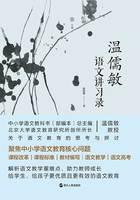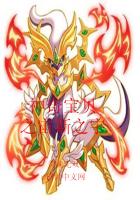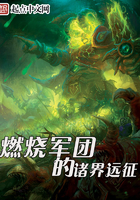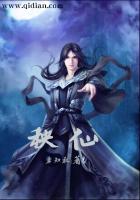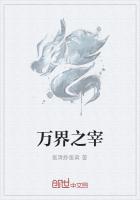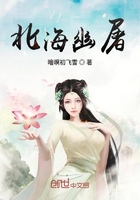中国民间信仰的神灵并无普遍认同的体系,神灵的地位和神灵之间的关系因地而异,有很大的随意性和灵活性,而且神灵有繁多的名目。本篇主要介绍民间信仰、庙宇的某些特点和中国历史上部分影响很大的神灵。
1.中国民间信仰有哪些主要特点?
What is the main feature of Chinese folk belief?
Chinese folk belief refers to faith in both the supernatural and Chinese mythology about various gods and deities. It is generally considered to encompass two related but separate subjects. The first subject is associated with three domains: heaven, the realm of ghosts and the land of living. The second refers to deities, ghosts or human beings that can interact and sometimes transform themselves from one into another. Some of the mythical figures of folk religion have even been integrated into Chinese Buddhism and Daoism.
In Chinese folk belief the soul of a person is believed to either ascend to Heaven or go down to the realm of the ghosts when he or she dies. So while they are still alive, people should establish a good relationship with deities or ghosts by means of providing them with sacrificial offerings and burning paper money.
Chinese folk belief has lasted for thousands of years, so it retains traces of some primal religious belief systems, which include the veneration of the Sun, the Moon, the Earth, the Heaven, and various stars, as well as communication with animals.
Chinese folk belief also contains the custom of worshiping ancestors. People hold sacrificial services in memory of their ancestors, and as part of the ritual they usually burn paper money. It is believed that this type of the paper would be a financial support to their ancestors in the after-world.
Notes:1)supernatural超自然的;2)mythology神话;3)en-compass包括;4)domain范围;5)interact互动;6)transform改变;7)mythical神话;9)ascend上升;10)retain保留;11)ve-neration崇拜;12)sacrificial献祭的;13)after-world后世
2.什么是民间庙宇?
What is a folk temple?
Folk temples (民间庙宇) flourished in the Ming and Qing Dynasties. These temples co-exist with Buddhist or Daoist temples or monasteries that have existed in China since ancient times. Due to the tide of modernization that started after the end of the Qing Dynasty in 1911, the number of folk temples has gradually decreased.
Chinese folk temples are generally small, and have different names and are located either in cities or in villages. Traditionally each temple has an image of the main deity together with some other deities that share the temple. Many of these deities represent good fortune or are responsible for the prosperity of the land.
One type of folk temples is called Tudi Deity Shrine (土地庙). The Tudi deity serves as a lower-level administrative spirit whose main responsibility is to ensure peace and security in his jurisdictional area, which is usually no more than a village in size, a bridge, a street, a temple, a public building, a private home, or a part of a field. Most of these buildings are simple and crude, and are only a few feet high, either located under trees or by the roadside.
Chenghuang Temple (城隍庙, city-ruling-deity temple) is another type of folk temple. It is devoted to Cheng Huang (城隍), one of the supernatural beings whose responsibility is believed to be that of defending the city and ensuring public security. The layout of the deities in a Chenghuang Temple usually consists of Cheng Huang, the grand deity being seated in the center of the temple’s main hall. Some other deities flank Cheng Huang’s image including Judges in Hades, Ox-Head and Horse Demons, Black-and-White Spirits, Bell-and-Drum Spirits (钟鼓神), as well as the Ten Hell Kings (十殿阎罗) and the other images of the Nether World.
A communal temple (村庙) falls into the category of folk temples and enshrines the communal deities. Traditionally a communal temple is built with purple or violet walls, and blue and green tiles. The roof slopes down on two sides and the eaves overextend beyond the tall walls at the sides of a temple building. Due to various reasons, not many communal temples exist in North China. However, in the southern areas of Fujian, Guangdong and Taiwan, many traditional communal temples still remain as part of the life of the community. Along the coastal land, communal temples are usually located within residential areas; in the inland areas many temples are set on the edge of a village.
Notes:1)flourish蓬勃发展;2)tide趋势;3)modernization现代化;4)jurisdictional管辖的;5)layout布局,安排;6)a judge in Hades判官;7)ox-head and horse demons牛头马面;9)black-and-white spirits黑白无常;10)Nether World幽冥世界;11)enshrine供奉;12)residential住宅的
3.玉皇大帝
Jade Emperor
In Chinese folk culture, the Jade Emperor (玉皇大帝), the emperor of the supernatural pantheon, lives in the Jade and Pure Palace (玉清宫). In the Daoist supernatural circle, according to one version of Daoist mythology, the Jade Emperor is the executive ruler who ranks just below the one of the Three Pure Majesties (三清尊神).
Although the Emperor hasn’t attained the state of the highest accomplishments in the Daoist supernatural circle, he has great authority, commanding all the deities in Heaven, the Earth, and the Land of the Living. In addition, he supervises auspiciousness and inauspiciousness: the prosperity and decline of all things in the universe.
It is said that on the 25th day of the twelfth month in the Chinese Lunar year, the Jade Emperor descends to the world for an inspection tour, giving rewards or penalties to deities and mortals in accordance with their annual deeds. On that day, people usually burn incense at home and provide food offerings to the Jade Emperor. Meanwhile, Zao Jun (灶君), the kitchen deity, makes his reports to the Emperor about each family’ good and evil deeds.
The Jade Emperor’s birthday is said to be the ninth day of the first lunar month. His birthday celebration is called the Jade Emperor Ritual (玉皇会). On this day, all the deities arrive at the ritual and join the grand celebration. In the folk and Daoist temples where the grand ritual is held, incense is burnt and food offerings are given.
Notes:1)pantheon众神;2)mythology神话;3)executive主管;4)majesty陛下,威严;5)attain实现;6)accomplishment成就;
7)supervise监督;9)inauspiciousness不吉祥;10)mortal凡人
4.西王母
Queen Mother of the West




